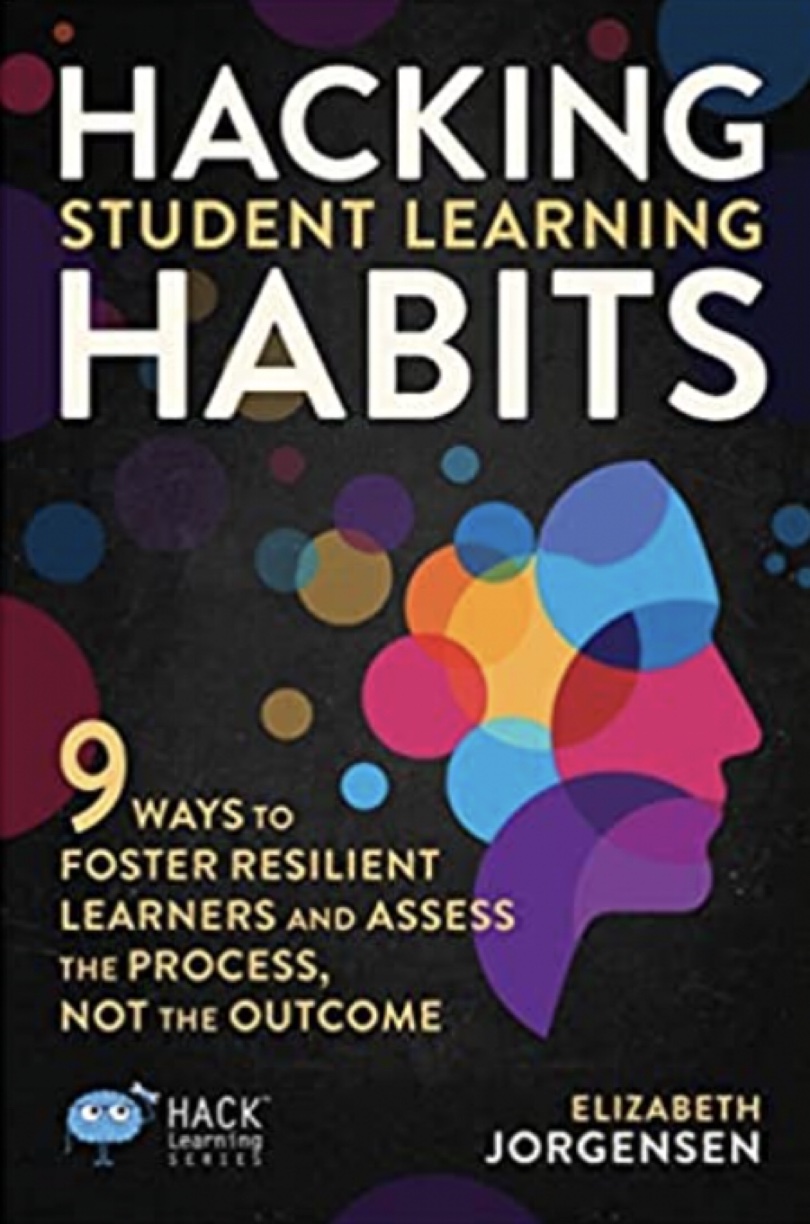
Hacking Student Learning Habits: 9 Ways to Foster Resilient Learners and Assess the Process, Not the Outcome by Elizabeth Johnson offers a host of great advice that beginning and veteran teachers can use to help their students form efficient learning habits. If you want to shift student focus from grades to learning with a bigger purpose, start here. Every leader should be sure to add this fine book to their professional development library.
Introduction: Implement Process-based Assessment
- As the subtitle implies, the goal is to focus on the process, not the finished product. The teacher provides feedback (no grades) to all students and tells them it is to help improve their work and not to judge anyone. Students are expected to make mistakes and learn from them. All work requires revision. Students are given ample time to write and revise in class, so late work isn’t an issue. By engaging in expected behaviors and habits, they earn points. Points are never taken away and can be used to generate grades if necessary.
- Do not use grades or rubrics. Rubrics are not used as they stifle creativity, prevent risk-taking, and provide a blueprint for blandness. All it does is expedite grading. It is also necessary to write a lot and to get feedback from the teacher and your peers. In the beginning, students and parents get letters from the teacher and a former student outlining expectations. (See the appendix for these letters.)
1. Create Process-Based Learning Habits: Support Skill-Building
- The goal is for students to form habits that allow them to be their best, develop higher-order thinking, and solve problems. Habits like reading each day, and getting proper sleep, exercise, and nutrition should be on the list. Students need to gather ideas, attempt challenges, collaborate, celebrate small victories, and play. The focus should be on effort rather than results. They should know that they have the power to improve and control their own progress through the habits they form. When possible, students should set goals.
- As a teacher, focus your energy on the things you can control and teach your students to do the same. Look for allies at conferences, on social media, and in your own school. Experiment with better ways to engage students. Share student work online and in school displays. Students should feel like it’s not about getting something done; rather, it’s about the process. Their big goal is to become self-directed learners.
2. Encourage Practice, Not Perfection: Performance with Daily Habits
- The important thing is to convince students of the benefits of accumulated daily practice. Remind them that their favorite sports stars practice every day. You can’t do yesterday’s practice tomorrow. Daily production increases confidence. Assess them on their ability to work through the process of practice. Inspire students to set process-driven goals. They need to identify with your help the behaviors they need to repeat each day. Seeing others be productive can exert powerful pressure.
- They should share their practice and receive feedback from each other, their teachers, and ideally, their parents and other family members. They should view feedback as a collaboration rather than judgment. They should value improvement over outcomes. Be sure not to average grades if you do give them. Efforts should simply add to previous efforts. Have face-to-face meetings with parents whose students struggle and have the students run the meeting that deals with the class problems and forms a plan.
DrDougGreen.com If you like the summary, buy the book





